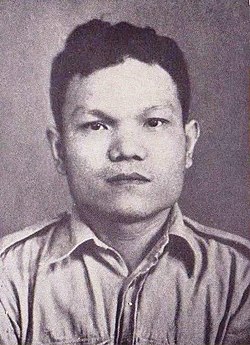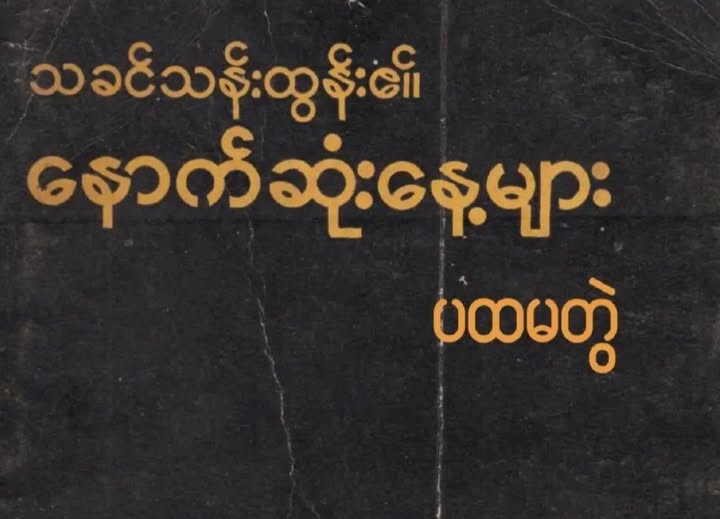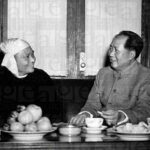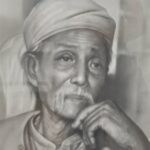
Thakin Than Tun (1911–1968)
Thakin Than Tun was one of Myanmar’s most influential communist leaders and a pivotal figure in the country’s struggle for independence from British colonial rule. His political activism and leadership left a lasting imprint on Myanmar’s modern political landscape, especially in the mid-20th century.
Early Life and Education
Born in 1911 in Myanmar (then British Burma), Than Tun grew up during a period of growing nationalist sentiment against British colonial rule. He received his early education locally and later became involved in nationalist student movements.
Political Awakening and Anti-Colonial Activism
Than Tun’s political career began with his joining the Dobama Asiayone (“We Burmans Association”), a nationalist group founded in the 1930s that advocated for Burmese self-rule. Members of this movement, including Than Tun, famously adopted the honorific “Thakin” (meaning “master” or “lord”) to assert Burmese sovereignty in defiance of colonial rulers.
He quickly became known for his leftist leanings and joined the emerging communist movement in Burma. His Marxist ideology shaped his approach to nationalism and social justice, emphasizing class struggle and the rights of workers and peasants.
Leadership in the Communist Party of Burma
Than Tun was a founding member of the Communist Party of Burma (CPB), established in 1939. The CPB was one of the key political organizations opposing British rule and later the post-independence governments. Than Tun served as a central leader within the CPB, promoting revolutionary change through armed struggle.
During World War II, the CPB initially allied with the Japanese occupation forces against the British but later turned against the Japanese as their oppressive policies became clear.
Post-Independence Role and Conflict
After Burma gained independence in 1948, Than Tun and the CPB became major opposition forces to the government led by U Nu. The CPB sought a communist revolution, leading to armed insurgency against the civilian government.
Than Tun’s leadership during this turbulent period contributed to the prolonged civil conflict and insurgencies that plagued the young nation.
Death and Legacy
Thakin Than Tun was assassinated in 1968, reportedly killed by internal rivals within the Communist Party. Despite the controversies surrounding his militant tactics, he remains a significant figure in Burmese history.
His advocacy for socialism, anti-colonial nationalism, and the empowerment of Myanmar’s working class left a deep mark on the country’s political discourse. The Communist Party of Burma, though weakened over time, influenced numerous ethnic insurgencies and leftist movements across Myanmar.
Summary
| Detail | Information |
|---|---|
| Full Name: | Thakin Than Tun |
| Born: | 1911 |
| Died: | 1968 |
| Key Roles: | Founding member & leader of CPB |
| Political Ideology: | Marxist-Leninist, communist |
| Notable Contributions: | Anti-colonial activism, communist leadership, armed struggle for revolution |
| Legacy: | Influential in Myanmar’s leftist politics and insurgencies |
Famous book about Thakin Than Tun “The last days of Thakin Than Tun“

FAQ: Thakin Than Tun
Who was Thakin Than Tun?
Thakin Than Tun was a Burmese revolutionary leader and co-founder of the Communist Party of Burma (CPB). He played a major role in Myanmar’s anti-colonial independence movement and later became one of the most influential leftist figures in the country’s modern history.
When and where was Thakin Than Tun born?
Thakin Than Tun was born on July 1, 1906, in Natmauk, Magway Region, British Burma. This is also the hometown of General Aung San, his close friend and fellow nationalist during the independence struggle.
What was his early political background?
Than Tun joined the Dobama Asiayone (We Burmans Association) in the 1930s, a nationalist group that opposed British colonial rule. The group’s members used the prefix “Thakin,” meaning “master,” to assert Burmese pride and equality with the colonial rulers.
What role did Thakin Than Tun play in Myanmar’s independence movement?
During the 1940s, Thakin Than Tun became a key member of the Anti-Fascist People’s Freedom League (AFPFL), a coalition that fought against both British and Japanese forces. He served as Minister of Information under Japan’s wartime administration but later joined the anti-Japanese resistance alongside Aung San and other Burmese leaders.
What is the Communist Party of Burma (CPB)?
The Communist Party of Burma, co-founded by Thakin Than Tun in 1939, was one of the first Marxist-Leninist movements in Southeast Asia. The CPB sought to establish a socialist state based on workers’ and peasants’ rights. After independence, the party clashed with the government and went underground to wage an armed struggle.
Why did Thakin Than Tun leave the AFPFL?
He left the AFPFL in 1946 due to ideological differences. While Aung San and other leaders supported democratic socialism, Thakin Than Tun favored a revolutionary communist path. His departure marked the beginning of deep divisions within Myanmar’s leftist movement.
What was Thakin Than Tun’s political ideology?
Thakin Than Tun was a firm believer in Marxist-Leninist principles. He advocated for land redistribution, workers’ rights, and an end to colonial exploitation. He also criticized foreign influence in Myanmar’s politics, arguing that true independence required both economic and ideological freedom.
Did Thakin Than Tun have any alliances or rivals?
Yes. He maintained a close but complex relationship with General Aung San, sharing nationalist goals but differing in ideology. After Aung San’s assassination in 1947, Than Tun’s influence declined as Myanmar’s post-independence government marginalized communist forces. His main rivals included U Nu and the democratic socialist faction of the AFPFL.
How did Thakin Than Tun die?
Thakin Than Tun was assassinated on September 24, 1968, at his jungle base in the Pegu Yoma region. Reports suggest that he was killed by a bodyguard in what was possibly an internal power struggle within the Communist Party. His death marked the end of an era for Myanmar’s revolutionary left.
What is Thakin Than Tun’s legacy in Myanmar today?
Thakin Than Tun is remembered as a complex and controversial figure — both a visionary revolutionary and a hardline communist. His leadership inspired generations of activists who sought social justice, even though his methods and ideology remain debated. In historical studies, he is often seen as one of the key architects of Myanmar’s early political awakening.
How did Thakin Than Tun influence modern Myanmar politics?
Many of Myanmar’s later political movements, including student protests and socialist organizations, drew inspiration from Thakin Than Tun’s ideas. His emphasis on anti-imperialism and equality continues to influence modern debates about economic independence and national identity.
Was Thakin Than Tun related to any other famous leaders?
While not directly related by blood, Thakin Than Tun shared his birthplace, Natmauk, with General Aung San, the father of Aung San Suu Kyi. Both men were central to the independence struggle but took different political paths after the war.
Did the Communist Party of Burma survive after his death?
Yes, the CPB continued its armed struggle for several decades after his assassination, particularly in northeastern Myanmar along the Chinese border. However, by the 1980s, internal divisions and the loss of foreign support led to the party’s decline.
What lessons can be learned from Thakin Than Tun’s life?
Thakin Than Tun’s story teaches the importance of political conviction, unity, and the consequences of ideological division. His vision for equality and justice remains relevant, even as Myanmar continues to face ethnic and political challenges today.




